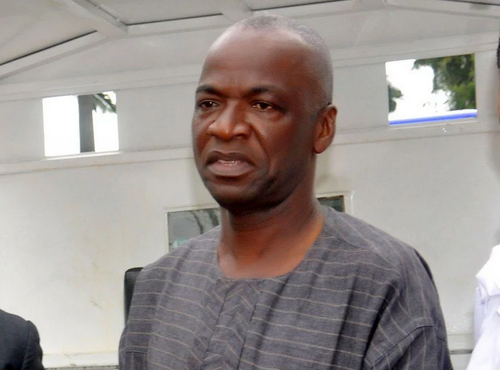The inability of Federal Government to revive incentives for non-oil exporters, proceeds from the sector has continued to witness a southward trend, as the nation’s earnings hit $1.6 billion from $3 billion recorded in 2013.
According to stakeholders in the sector, earnings from non-oil export can easily cross $5 billion this year and bring some relief to tackle the foreign exchange crisis prevailing in the economy, if suspended incentives are revived and other challenges addressed.
Executive Secretary of the Organised Private Sector Exporters Association (OPEXA), Jaiyeola Olarewaju said that exporters have in the last two years, been sitting on a backlog of over N100 billion worth of unutilized export certificates issued under the seal of the Ministry of Finance, urging government to honour its financial commitments in regards to extant law, The Guardian reported
“It is paradoxical that one sector that had the potential to cushion the commodity shock has been paralysed due to lack of inter-ministerial coordination. Nigeria’s non-oil exports fell from $3billion in 2013 to $1.6 billion in 2015. In 2014, the country had realised $2.7 billion in non-oil exports. In 2015, exports of cocoa, Nigeria’s largest commodity declined by 35 per cent whereas leather exports, which is the main stay of industrial economy in the North plunged by 60 per cent.
“If the EEG policy had been sustained, our non-oil exports today would have easily crossed $5 billion by 2016 and brought some relief to tackle the foreign exchange crisis prevailing in the economy. The officials have been evading the issue by alluding to perceived abuses of the grant which led to its suspension. It is classic case of throwing the baby with the bath water. The exporters relied on the extant policy and repatriated forex through the banks duly verified by the CBN”.
He explained that while diversification is being advocated as the need of the hour to generate employment by boosting production in the non-oil sector, government should clear the backlog of unutilised NDCCs and exports made in 2014 and 2015 under the extant policy to sustain about 11 million Nigerians employed directly and indirectly in the non-oil export sector.
He noted that addressing unutilized export certificates could be done by converting them into government bonds with a medium to long term maturity to avoid undue pressure on current government revenue.
“The ministries of Industry, Trade and Investment as well as Finance, should harmonise their position and come up with a sustainable and effective EEG policy to put non-oil exports back on track,” he said.
Nigeria’s non-oil export sector is still in its infancy and came into mainstream in the last 10 years due to the policies that were put in place that encouraged the sector to invest in agricultural supply chains, export processing factories and overseas marketing.
“The root cause of the decline in non-oil exports was a legacy of the past administration inherited by the present government. There is an opportunity to reverse the trend by restoring the policy framework that led to the rapid development of the sector.
“Non-oil exports were boosted by the Export Expansion Grant or EEG policy meant to cushion the cost disadvantages faced by our exporters due to infrastructural deficiencies. It improves the price competitiveness of Nigerian products in the international market. Since 1999, EEG has been given in form of negotiable duty credit certificates (NDCCs). However, the former Minister of Finance arbitrarily suspended the utilisation of the certificates pending a review of the scheme which for the past three years has been languishing due to lack of inter-ministerial coordination”, he added.
Latest monthly economic report released by the CBN provisionally puts non-oil exports at $244 million in the month of November, noting that the month-to-month decline was precipitated by fall in receipts from the food products and minerals sectors. Industrial products, which earned $79 million, accounted for the largest proceeds.
The sector breakdown shows that proceeds from manufactured products, agricultural products and the industrial sub-sector grew by 13.3 percent, 13.5 percent and 38.3 percent, respectively, on a month-to-month basis.
On the other hand, proceeds from food products and minerals decreased by 86.4 percent and 49.2 percent, respectively.
In the month of November, non-oil exports stayed very low at approximately 1 percent of GDP.
The report stated that, “the agriculture and manufacturing sector, which underpinned non-oil exports in November, grew by 2.6 percent yearly and contracted by minus 1.8 percent in third quarter 2015, respectively. The national accounts are due for later this year.”

